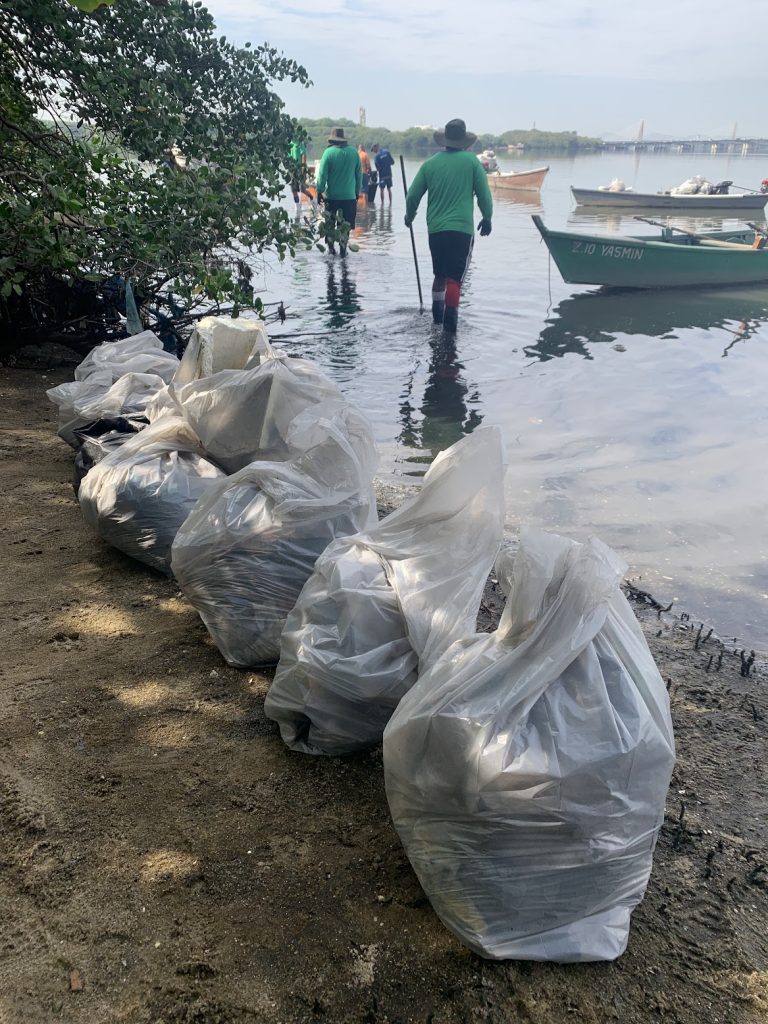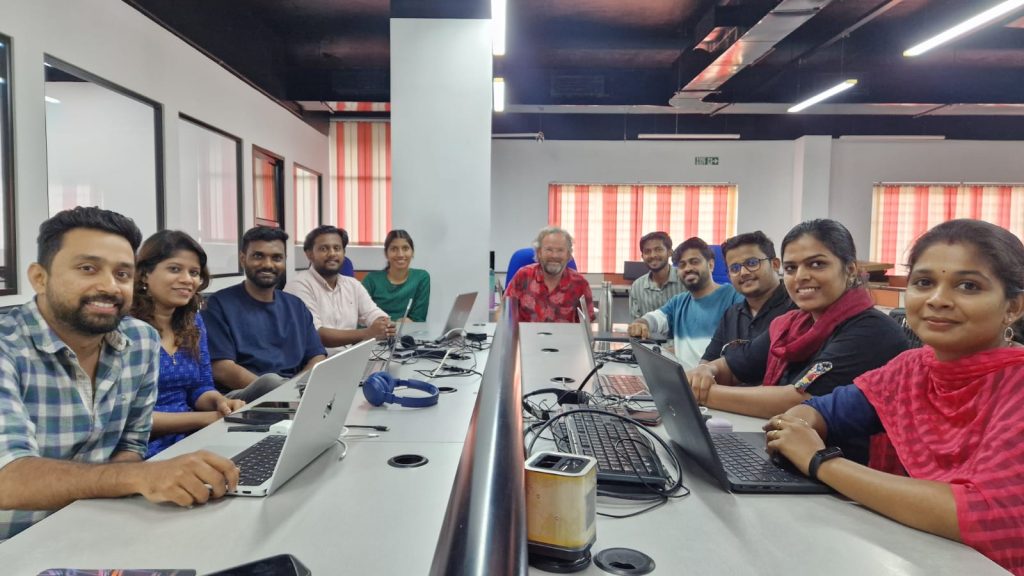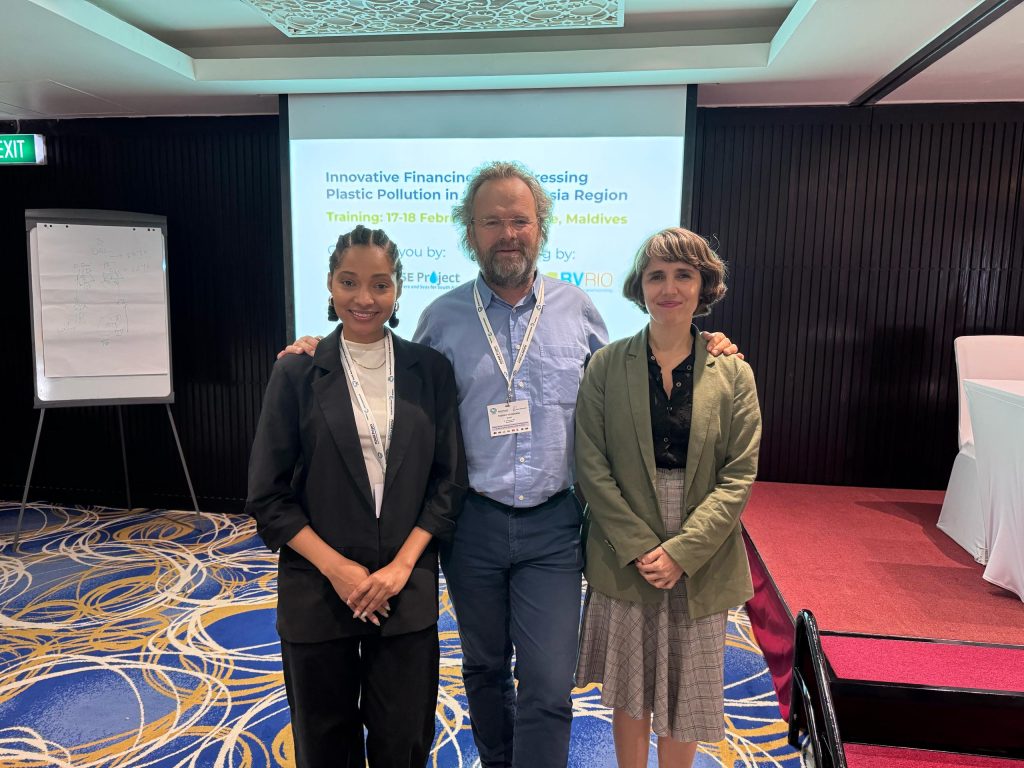This July, BVRio conducted a waste collection and field research action on Raimundo Island, located in Guanabara Bay, Rio de Janeiro, as part of the Fishing for Litter project, which aims to mitigate the effects of pollution and promote social inclusion in the region.
In just five days of collection, 5,349.43 kg of waste was removed from the uninhabited island, with the participation of 22 artisanal fishers from Guanabara Bay, supported by BVRio’s circular economy team. The collection sites on the island included areas accessible only by boat, forested sections, sandy stretches, and mangrove areas. The fishers are paid for their work through the project, which aims to fund two days per week of waste collection activities in order to top up the fishers income.
“The action showcases the immense potential of this project to transform the region. Beyond significant clean-up efforts, we successfully monitor waste quantities and materials, providing valuable data for future actions. Most importantly, we reinforce environmental education among fishers.” Pedro Succar, BVRio circular economy specialist.
The logistics of the action involved collecting inorganic materials from the island, which were sent to a segregation centre. The team classified the materials by type and recorded them in the KOLEKT waste management app. Recyclables were sent to a cooperative of waste pickers, reintegrating them into the recycling chain, while non-recyclables were sent to the municipal landfill.
With approximately 800 metres of coastline, Raimundo Island is located between Rio de Janeiro International Airport and one of the city’s largest favelas. The coastal environments of Guanabara Bay, such as sandy beaches and mangroves, are severely affected by pollution. According to a study by Ferreira, Silva, and Resende (2011), “the impact of this pollution on a metropolitan scale directly affects artisanal fishing, a primary activity within an urban reality that has been severely and directly impacted by this reality.”
“Uninhabited areas like Raimundo Island must not be forgotten. They are an integral part of an interdependent ecosystem crucial for marine life and the livelihood of fishers in Guanabara Bay. The health of these ecosystems directly impacts the quality of life for all residents and the sustainability of local production methods.” Said Pedro Succar.
BVRio’s action on Raimundo Island highlights the importance of the Fishing for Litter project for environmental preservation and local economic activities like artisanal fishing. “As fishers, we always fight to bring sustenance home, but it is not enough to sustain us. With this project, we can have financial assurance.” Reports Mario, a fisherman involved in the action.
“It is urgent to secure new, long-term sources of funding to ensure the continuity of this essential work. With more resources and extended timelines, it will be possible to transform the reality of Guanabara Bay, and others like it. Without ongoing investment, families face the loss of this crucial additional income. Investing in the Fishing for Litter project is an investment in the environmental and economic future of the region.” Concluded Pedro Succar.




